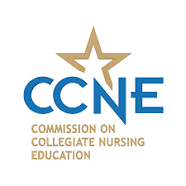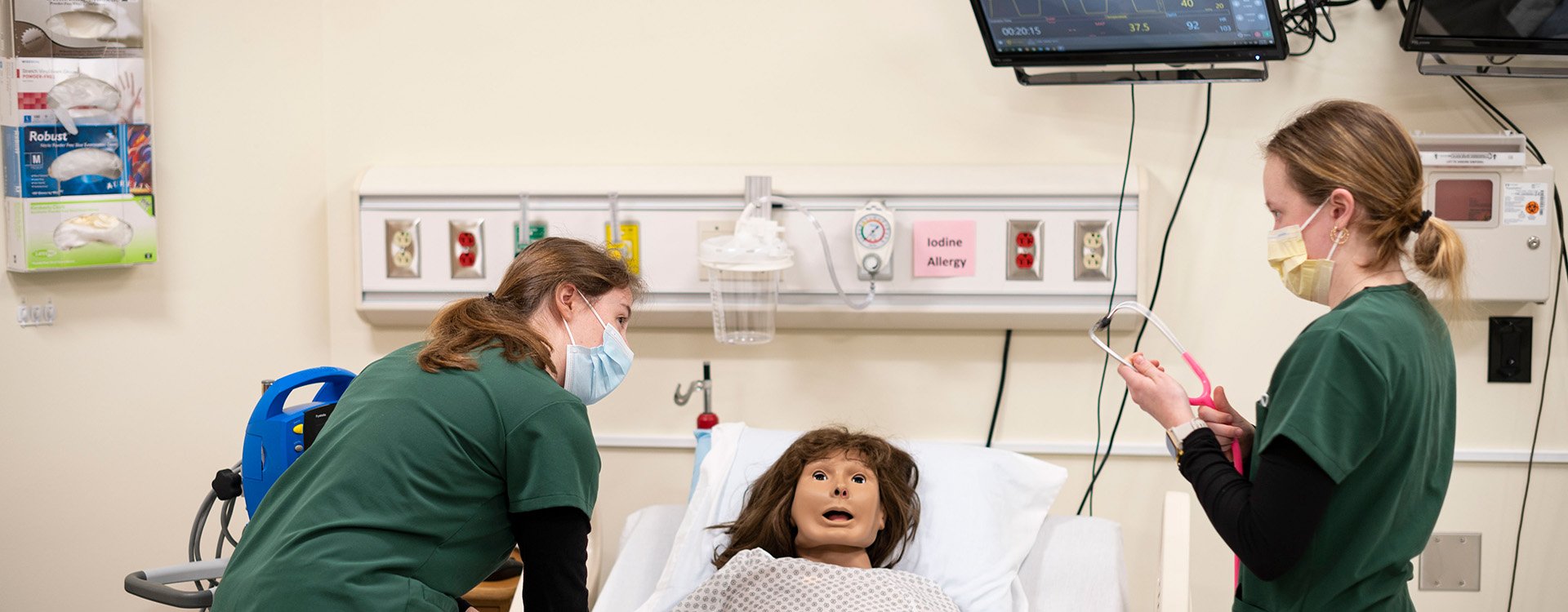

Let your compassion and desire to help others drive your career with a Bachelor of Science in Nursing degree from Wisconsin Lutheran College.
As a student in our nursing program you'll get hands-on training in the classroom and our state-of-the-art nursing lab. You'll engage in clinical experiences in the metro Milwaukee area that offer direct patient care opportunities with diverse and vulnerable populations in adult health, mental health, pediatrics, and obstetrics. You'll also experience a cultural health clinical that offers an immersion experience abroad or an opportunity to work with a vulnerable population in the local community. A 120-hour preceptorship in the final semester of the program facilitates your transition from the role of student to professional nurse.
Graduates of our nursing program enter the workforce as Christian servant leaders who are ready to provide holistic, high-quality patient care in a variety of settings.
At WLC, you’ll receive hands-on experience within our Bachelor of Science in Nursing (B.S.N.) program. Our unique location and curriculum design provides you the opportunity to engage in a variety of clinical experiences. Our nursing students have engaged in clinical experiences at inpatient rehabilitation units, assisted living facilities, elementary schools, long-term care, and occupational health and community settings. Froedtert Hospital (a Level 1 Trauma Center) and Children's Hospital of Wisconsin, located across the street from WLC, as well as numerous other medical centers across Milwaukee, provide opportunities for students to regularly participate in acute care settings.
The results of our graduates’ state board exams (National Council of State Boards of Nursing [NCLEX-RN]) and graduates’ employment rates reflect the high quality and rigor of the WLC nursing program.
WLC nursing alumni currently hold desirable positions in emergency rooms, intensive care units, trauma units, OB-GYN units, and oncology units. They currently work at Froedtert Hospital, Aurora St. Luke's Medical Center, Aurora Sinai Medical Center, Children's Hospital of Wisconsin, and Columbia St. Mary's Hospital, as well as a variety of other settings throughout the nation.
Healthcare professionals make a real and measurable difference in their communities, across the nation, and abroad. Studying the health sciences at WLC, you'll receive a strong science foundation that supports your growth and development, the personal care and attention of our faculty, and our small-campus charm in a big city with access to diverse healthcare facilities. You'll graduate confident, fully prepared to live your purpose.
In 2018, we transformed a portion of Generac Hall into dedicated nursing simulation labs and classrooms. In addition to robust clinical and preceptor opportunities, our nursing majors receive training with moderate- and high-fidelity human patient simulators in labs designed to imitate patient clinic and hospital rooms. The labs allow students to take vital signs, hear heart and lung sounds, care for wounds, and set up IVs, practicing their skills before treating real patients. Our labs include VALT, an audio visual capture system, to provide real-time observation of simulations in our nursing classroom, recording, and post-simulation debriefs.
Victoria, a lifelike, high-fidelity simulator, offers a full-range of functions to provide a truly immersive experience for our nursing students. She is a birthing simulator, but she is also used for complex medical-surgical simulations, which means that both juniors and seniors utilize Victoria to supplement their learning throughout their clinical courses.
Our two newest simulators can be remotely controlled by our faculty and programmed with various vital signs, heart sounds, and lung sounds, among others. Sophomores will use these simulators for practicing skills, such as learning assessment techniques, medication administration, catheter and nasogastric tube insertion, and IV management. Juniors and seniors will use these simulators in clinical scenarios in the lab that mimic real life nursing care situations.
Schedule your personal visit experience and request a tour of our nursing labs, or explore Generac Hall and our nursing labs via our panoramic 360° immersive virtual tour.
Incoming first-year freshman WLC students are admitted directly into the nursing major (no waitlist). All full-time non-transfer students who consistently meet the academic progression criteria for the School of Nursing (e.g. >2.75 GPA) should expect to graduate in four years.
The School of Nursing is committed to the development of Christian professional nurses who are service-driven, community-focused, and are ambassadors for the nursing profession; furthermore the School of Nursing fosters a love of learning and a desire for continued education.

The baccalaureate program at Wisconsin Lutheran College is accredited by the Commission on Collegiate Nursing Education, 655 K Street NW, Suite 750, Washington, DC 20001; phone: 202.887.6791; fax: 202.887.8476.
The Wisconsin Lutheran College School of Nursing Graduate will:
The philosophy of the School of Nursing is consistent with the mission, vision, and purpose of Wisconsin Lutheran College, which provides students with a strong Christian foundation in the liberal arts. The School of Nursing faculty believes in the development of students in the spiritual, professional, intellectual, social and educational domains.
Spiritual: As servant leaders, nurses provide patient care from a Christian and holistic perspective.
Professional: Professional nurses function within their scope of practice and are held to the highest legal and ethical standards. The professional nurse will be an advocate for patients as well as an ambassador for the nursing profession.
Intellectual: Nursing is the application of knowledge, utilizing critical thinking and evidence-based practice within the nursing process.
Social: The nurse is a collaborative member of the interdisciplinary care team who communicates effectively with care providers. The nurse also engages in therapeutic communication with patients, families, and communities.
Educational: Patient education is an essential role of the nurse. In addition, nurses have a personal accountability for their own learning and continued education. “Therefore, as we have opportunity, let us do good to all people. ” Galatians 6:10a